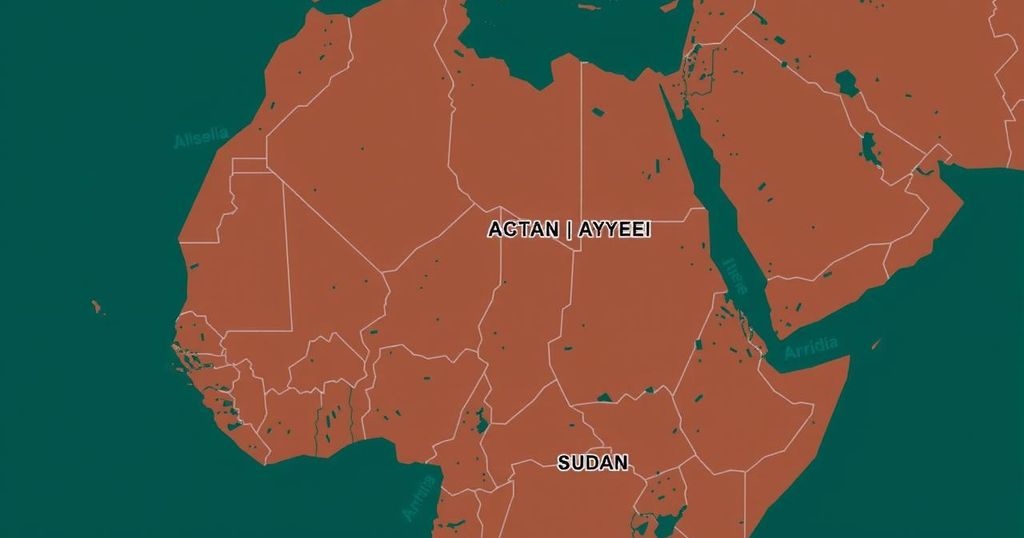Leaders of the Dinka Ngok in Abyei have demanded self-governance amid the ongoing Sudan conflict, claiming that delays in a promised referendum are diminishing prospects for a peaceful resolution. In a memorandum to UNISFA, they request support for self-rule until a final status for Abyei can be established. The situation is exacerbated by South Sudan’s reluctance to initiate conflict over Abyei, leading the Dinka Ngok to warn of increased violence and the critical issue of statelessness they face.
On October 28, 2024, leaders of the Dinka Ngok community in the Abyei region have voiced a strong demand for self-governance as the ongoing conflict in Sudan continues to obstruct the long-awaited referendum that would determine the area’s future. In a memorandum addressed to the United Nations Interim Security Force for Abyei (UNISFA), the Dinka Ngok, the predominant inhabitants of Abyei, called for essential international support to establish self-rule during an interim period until Sudan and South Sudan can arrive at a conclusive agreement regarding Abyei’s status. The Comprehensive Peace Agreement of 2005 granted Abyei a unique status and included a provision for a referendum to decide whether it would belong to Sudan or South Sudan. Unfortunately, repeated delays have marred this process, arising primarily due to disputes concerning voter eligibility, particularly regarding the participation rights of the nomadic Misseriya tribe. The memorandum indicated a growing realization that Sudan is resistant to relinquishing control over Abyei, while South Sudan appears to lack both the means and the willingness to engage in military conflict over the region’s ownership. Amid the ongoing turmoil in Sudan and the hesitation of South Sudan to act independently, the Dinka Ngok express a grim outlook concerning the resolution of their situation. They cautioned that Abyei, which has already endured decades of violence, is at risk of becoming a site of further conflict. The document elaborates on the critical issue of statelessness experienced by the Abyei population, who find themselves devoid of the protection and assistance typically provided by a recognized state. The leaders assert their inherent right to self-governance, a provision acknowledged in the 2005 peace agreement. Initially, the agreement allowed for dual citizenship for the residents of Abyei in both Sudan and South Sudan; however, following South Sudan’s secession and subsequent administrative changes, this arrangement has lost its validity. Therefore, the Dinka Ngok leaders are now calling for the formal recognition of their right to self-governance and reestablishment of dual citizenship as a necessary step to break the current impasse and foster peaceful coexistence with both neighboring countries.
The Abyei region, contested by Sudan and South Sudan, has been embroiled in conflict and instability since the Comprehensive Peace Agreement (CPA) was signed in 2005. The CPA was intended to address the deep-rooted issues between the two nations, including the governance and status of Abyei. Despite the intention for a referendum to be held, delays stemming from disagreements over voter eligibility—particularly the participation rights of the nomadic Misseriya tribe—have hampered progress. The ongoing conflict in Sudan has further complicated matters, with the Dinka Ngok community facing the imminent threat of statelessness as they are caught in a conflict without the support of a recognized state. Their call for self-governance serves to highlight both their plight and the urgent need for international intervention to ensure their rights and solve the political deadlock between Sudan and South Sudan.
The Dinka Ngok community is steadfast in their demands for self-rule in Abyei, emphasizing the urgent need for international support amid ongoing conflict and unresolved disputes with Sudan over the region’s status. The situation illustrates the complexities surrounding the rights of the Abyei people, the challenges in executing the provisions of the Comprehensive Peace Agreement, and the pressing need for a viable resolution that upholds their rights and safeguards peace in the region.
Original Source: sudantribune.com







